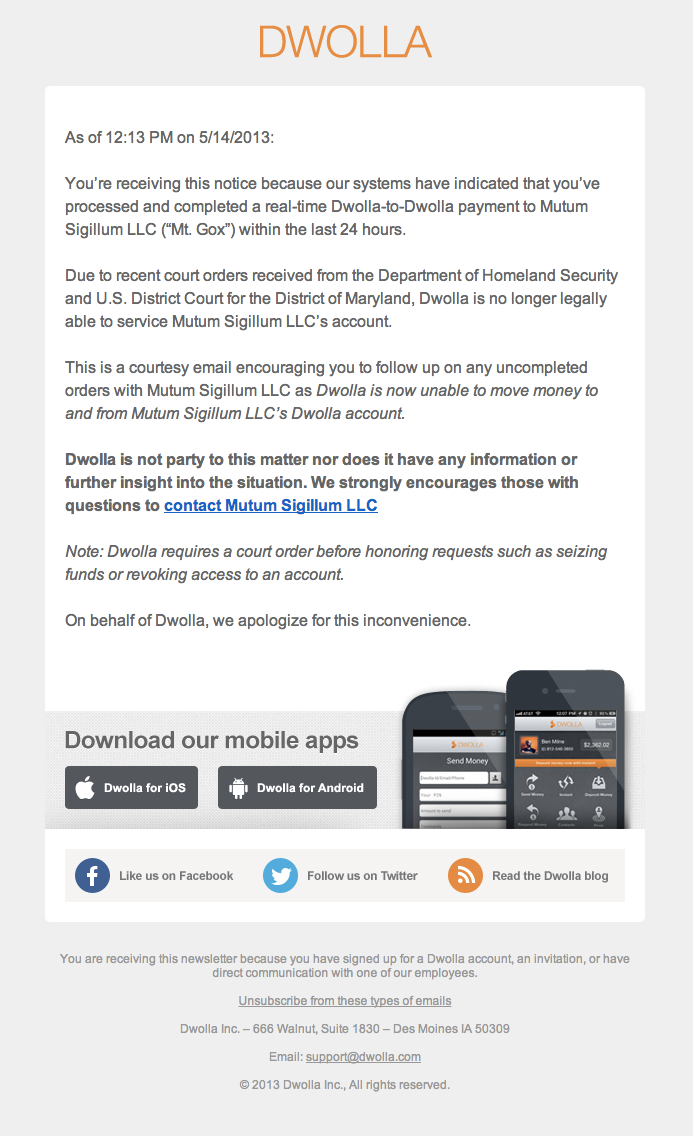REPORT: Department Of Homeland Security Prevents Payment Provider From Transferring Money To Bitcoin Exchange
One of the big questions about the viability of Bitcoin, the anonymous, virtual currency that has surged in value this year, is what sort of government oversight and regulation it would have to deal with.
We may find out soon.
Today, Dwolla, a payment service that had allowed users to transfer funds into and out of accounts at Mt. Gox – the world's largest Bitcoin exchange – said it's been ordered by the U.S. Department of Homeland Security to cease fund transfers to and from Mt. Gox.
The email below, courtesy of Betabeat, was sent to several Dwolla users today.
Homeland Security's reason for interfering here is unclear, but because transacting in Bitcoin is essentially an anonymous process, it may be appealing for those looking to conduct illegal activities, and hence, it makes sense that it's a target for regulators.
ConvergEx Group strategist Nick Colas recently devoted some space to Bitcoin regulation in a note to clients:
If the venture capital community wants to make bitcoin the “Next big thing”, staving off regulation by bringing the currency into the light is just as important as their other goals. Yes, the U.S. Treasury recently issued some guidance, essentially bringing bitcoin into the regulatory fold. At the same time, regulators do have the facility to make life difficult for bitcoin if they so choose. Recall that they were able to essentially shut down online gambling in the U.S. a few years back by forbidding U.S. banks to fund overseas accounts for the purpose of playing cards or games of chance.
In the end, however, it would be very hard to shut down bitcoin on a global basis. Recall that the system runs on thousands of servers around the world and once money enters the system, the only trace of its existence is a letter-and-number key. Anyone who has that identifier can exchange it for sovereign currency in any country that allows its banking system to plug into a bitcoinexchange.
My humble recommendation to venture capitalists to avoid further regulation or an outright ban is to quickly convince global charities to use the bitcoin system for both donations and money transfers. It is, after all, ideally suited to the purpose of taking in money in rich countries and efficiently moving it abroad to places with limited financial infrastructure. According the National Philanthropic Trust, individual Americans gave $218 billion in 2011, the most recent information available, and there are over one million charitable groups operating in the U.S. Presumably they all have bank accounts to process payments and would like a more efficient way to distribute funds.
Needless to say, Dwolla users will be anxiously awaiting Homeland Security's reasoning for today's actions.
More From Business Insider


